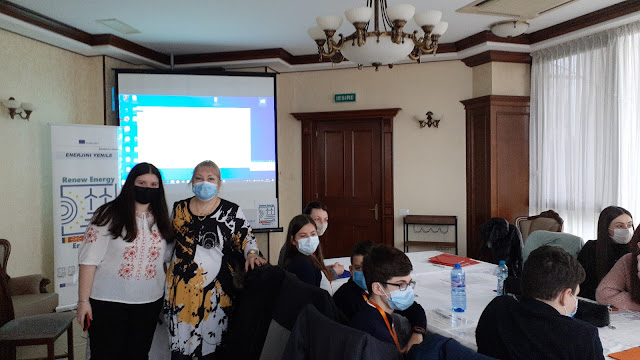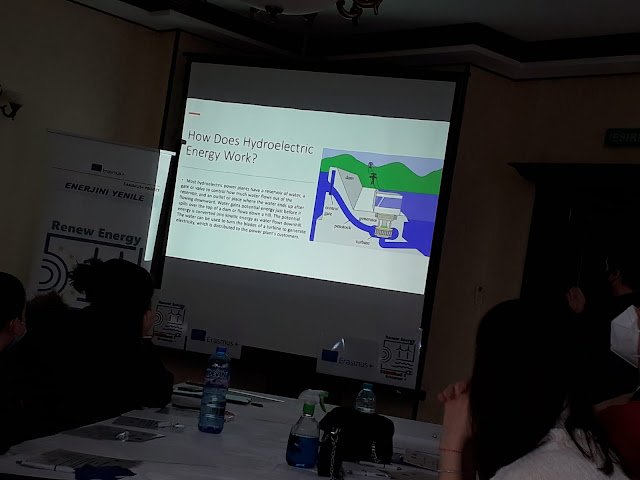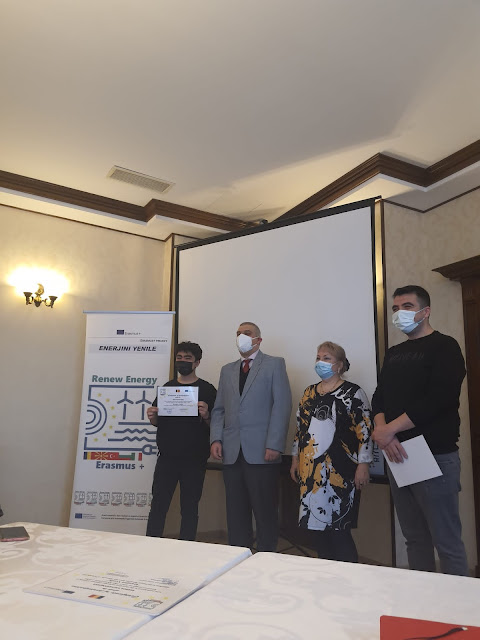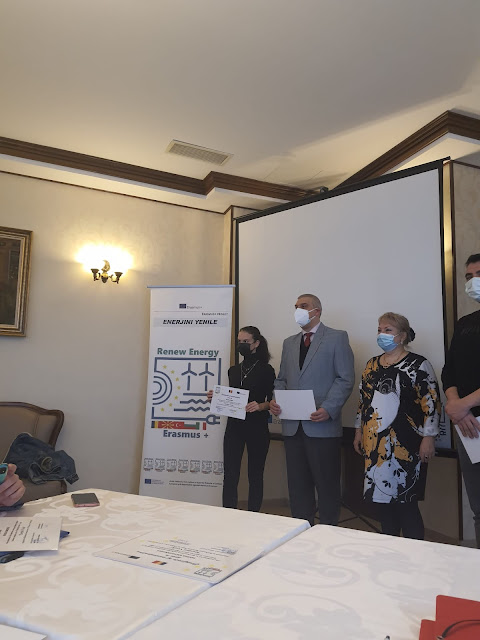MOBILITY IN ROMANIA
28/02/2022 - 04/03/2022 in SCOALA GIMNAZIALA MARIA ROSETTI, BUCHAREST
LTT was held in Romania in November 2022 under the leadership of Scoala Gimnaziala Maria Rosetti School. The school was chosen as the leader because of its hydroelectric power plants on the Danube, the second largest river in Europe. LTT activities, small group work, brainstorming, presentations, workshops, demonstrations, project-based learning, field visits, methods and materials development students using problem solving, critical thinking, collaboration, and creativity skills were developed. LTT was held for 5 days with the participation of 4-6 students and 1-2 teachers from the participating schools and 4 teachers and 16 students from the leading school (Total 8 teachers, 32 students).
1st day
-introduction to the presentation and question-answer
event which introduces the participants ' schools, countries and cultures,
- presentation of the host school on "hydroelectric
power and potential",
- city tour, visit to the Grigore Antipa Natural History
Museum.
2nd day
- about Erasmus+ programs and eTwinning, the coordinator
of the host school mentoring other teachers,
- presentation of each school on its country's
"hydroelectric energy potential and uses",
- short film on "which is the right" under the
mentorship of the host school's visual arts teacher and sharing it on social
media.
3nd day
- seminar on "why hydroelectric power" with
academics from the University of Bucharest,
- educational visit to Bacsız EV (Renewable Energy
Centre),
- event promoting Romania's food culture, folk dances and
songs with the participation of parents.
4th day
- students calculated the "carbon
footprint"with STEM approach, brainstorm measures to reduce it, design and
implement concrete products with "carbonless House" Design, share the
work with E-Twinning project partners,
-visit to the
Danube River, Demirkapı Hydroelectric Power Plant and Nera Gorge-Beușnița
Nature Park.
5th day
- teachers 'development of course materials ,
- digital panel preparation and product exhibition,
-students'
incomplete learning during the activity with the contribution of the teachers
of the host school, -evaluation meetings and writing progress reports. Our
students at this LTT; - Explore the hydroelectric generation process through
concrete examples,
- calculating carbon footprints, discussing measures to
reduce this, developing key skills with the "carbon-free home" design
they had prepared with STEM method,
- team work with different learning groups, develop
language skills and gain self-confidence by socializing in multicultural
environments, also;
-Teachers were mentored on Erasmus+ and e-Twinning,-
disadvantaged students were separated positively by joining LTT,
- geography lesson was covered on "Water
Resources",
- experience gained, developed teaching materials and
presentations were added to the lesson plans and continuity was ensured by the teachers
of the partner schools
Benefits of the participants
- Participants learned the production process of
hydroelectric power in Romania by living through a training visit to the
"Demirkapı Hydroelectric Power Plant" on the Danube River.
- Students in small study groups by applying the
brainstorming technique with the approach of making designs that reduced their
carbon footprints and the STEM was realized by a "carbon-free Home"
grew and at the same time key skills activity, student’s concrete products were
designed.
- Our students learned the "Water Resources"
topic of geography lesson on the spot through these LTT activities.
- Students carried their Concrete Products to the virtual
environment with the event called " How Do I Shrink My Carbon
Footprint?" they moved their work into the virtual environment by creating
permanent products on social media with their themed short film work.
- Students were able to understand the changes they
needed to make in their lives to increase hydroelectric use and reduce carbon
footprints.
- The organization and cooperation capability of the
institutions that came up with original ideas increased through mutual exchange
of information; the institutions had the ability to make multi-national and
multi-partner projects.
- The materials developed by our teachers contributed to the
development of the curriculum and to the improvements to be made in the
processing of the courses.
- Our students used social media actively, efficiently
and on the spot.
- Equality of opportunity was achieved by the inclusion
of economically and socially disadvantaged students in mobility.
- Participants were able to recognize different cultures
and thus overcame their prejudices, gained experience abroad and gained
practice of speaking English.
- The activities increased students ' interest in the school, thus reducing school absences.
PRESENTATION OF THE ROMANIA
PHOTOS FROM THE MOBILITY
SECONDARY SCHOOL MARIA ROSETTI, BUCHAREST
WORK AT PROJECT'S ACTIVITES



































































































































































































